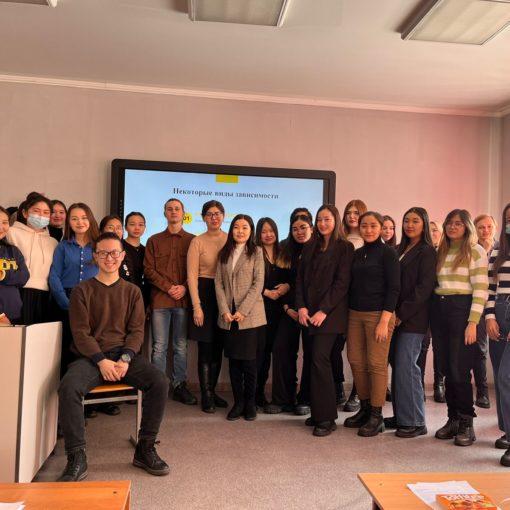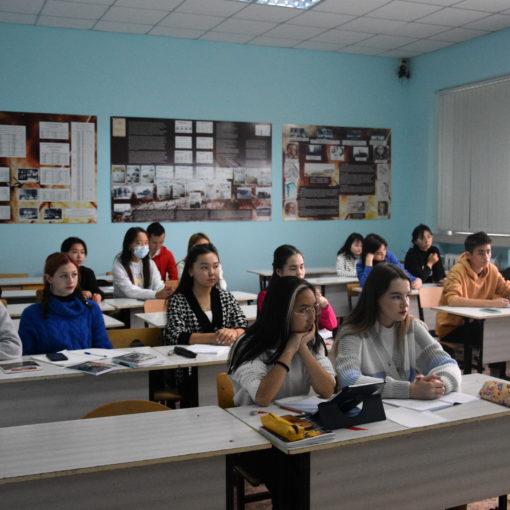On June 23, 2021 SIC “Rukhaniyat together with the head of the department of general educational disciplines E.B. Kasenov among the students of all educational programs held a discussion of the research work of Edward Wadi Said “Orientalism” in the special project “New Humanitarian Knowledge. 100 new textbooks in the Kazakh language” of the program “Rukhani Zhangyru”.
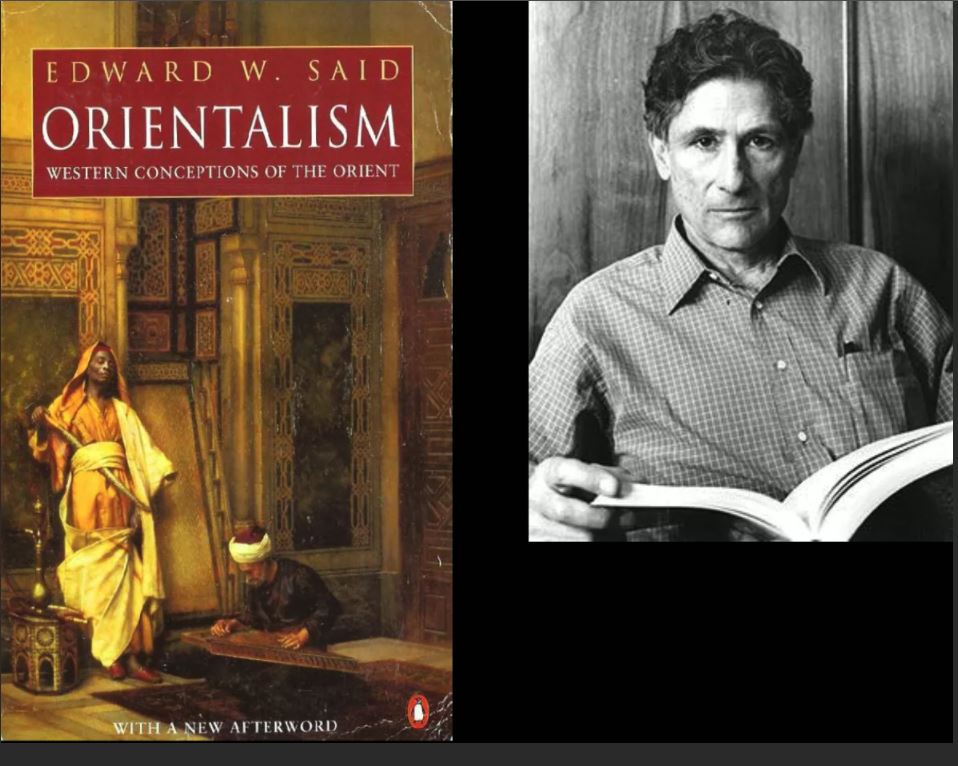
The purpose of the lecture: Creating conditions for students to receive education in the areas of humanitarian knowledge in the state language on the best world standards.
Objectives: 1. Contribute to increasing the professional skills of students and expanding the range of knowledge of humanities disciplines.
- Organize constant work of students with electronic resources: – https://ruh.kz – https://100kitap.kz
- https://openedu.ru/ for free courses
- the “Library” section of the Academy website “Bolashaq” for systematization and updating of knowledge.
- To develop personal reading culture in today’s information environment
In the last two decades, Western historiography has been increasingly critical of the methods and approaches of traditional Orientalism, commonly referred to as “Orientalism. Its origins date back to antiquity, when the Greco-Persian wars resulted in the Asia-Europe dichotomy. The era of the Crusades marked the beginning of Europe’s constant contact with the countries of the East.
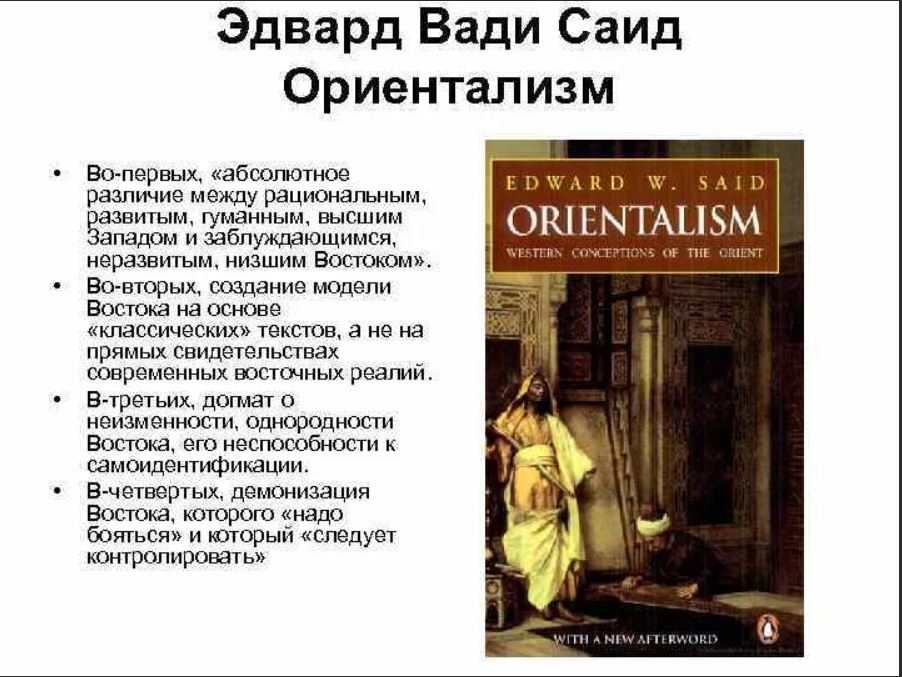
Recently, however, Western civilization has been undergoing dramatic ethnic changes: a large stream of immigrants from the East has been pouring into Europe and America, who, having partially adapted to Western society, have criticized many of the stereotypes prevailing there.
Edward Wadi Said (1935-2003), a world famous American scholar and public figure of Palestinian origin, was one of the first in the West to criticize old approaches in Oriental studies. His life story is typical of many American immigrants of the 1950s and 1970s. He was born in 1935 in Jerusalem. In 1947 his family moved to Cairo to join relatives as refugees. In 1951, his family sent Said to study in the United States at Mount Hermon Preparatory School in Massachusetts. After graduating from Princeton University, he went to Harvard, where he earned a Ph.D. and became a professor of comparative literature at Columbia University.
The impetus for Said’s study and critical revision of Orientalist approaches came from the 1967 Arab-Israeli War.
In his analysis of “Orientalism,” the scholar distinguished three main meanings of the word. According to Said, all those who study the Orient are Orientalists, and what they do is called Orientalism. He points out, however, that in recent times the term Orientalism has become preferable for this process of study. This is because the term is too vague; it has tainted itself with the arrogance of European colonialism.
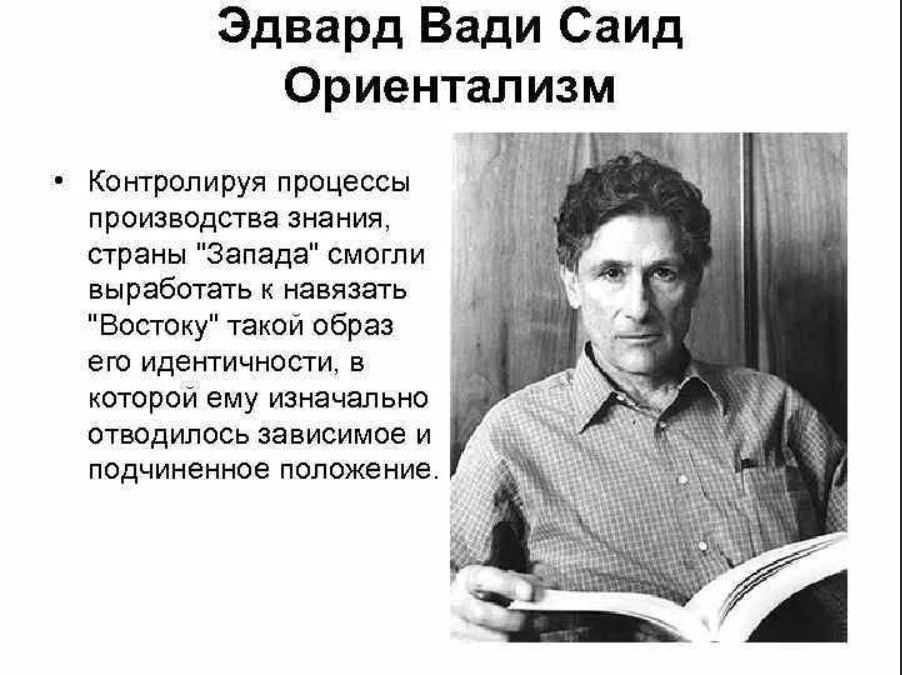
The second meaning of Orientalism as a way of thinking is based on the ontological and epistemological distinction between East and West. And, finally, the third is Orientalism as a Western style of subjugating the East.
Orientalism, until recently, denoted Orientalism, a discipline originating in the West, which acquired an independent meaning and was put on a scientific basis in the eighteenth and nineteenth centuries. However, the methodology of Orientalism proved to be very controversial, and for some theorists it became a subject of lively debate. And the publication in 1978 in New York of Edward Said’s Orientalism, one of the most influential works of the last quarter century, has put modern Orientalism in an extremely difficult situation.
Edward Wadi Said is Professor of Comparative Literature and English at Columbia University. The problems posed by Said are now pressing for both history and philology.
Global universities using the book include: University of Oxford; Stanford University; University of Cambridge; Harvard University; Princeton University; University of California, Berkeley; Brown University; Columbia University; Yale University.
Participants of the Educational Lecture Series actively participated in the discussion of this textbook and tried to answer the following questions:
- Do you agree with Edward Wadi Said’s meanings of “Orientalism” or do you have your own perspective?
- What do you see as the ontological distinction between East and West?
- What research on this subject are you familiar with?
- What do you see as the epistemological distinction between East and West?
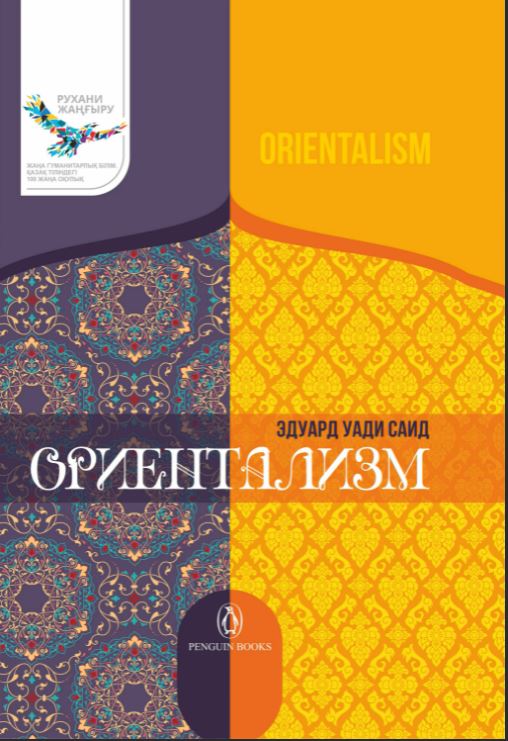
In his research paper, Orientalism, Edward Wadi Said links the emergence of Orientalism to centuries of European domination of the Middle and Near East. He criticizes the West’s one-sided and superficial approach to the perception of the Eastern world and suggests a comprehensive analysis. In the introduction, the author, focusing on the closely interrelated academic, political and social, ideological characteristics of Orientalism, divides it into two groups: latent and manifest.
This book has had a unique impact on liberal arts education and marked the beginning of postcolonial studies. In his work, the author suggests that many studies on the subject fail to reveal the true nature of the East, and that any thought about the Oriental world undergoes a certain filtering before it is published. As evidence, he cites Orientalist texts by scholars from Britain, France, and the United States. “The West needs a completely opposite world to set itself apart from others. The West has used the East for this purpose, making an effort to form a concept beneficial to itself,” the author said.
This sweeping work (Edward Wadi Said’s Orientalism. Publisher: Penguin books, 2003 – 396 p.) is intended not only for students, but for all readers who want to take a new look at the West and the East, read it at https://openu.kz/ru/book/orientalizm
Rukhaniyat Research Center
Department of OOD

